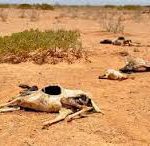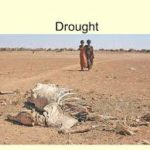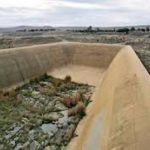 1, Wash vegetables and fruit in a bowl, not under the tap – then use the leftover water to water houseplants.
1, Wash vegetables and fruit in a bowl, not under the tap – then use the leftover water to water houseplants.
2. Keep a bottle of water in the fridge so you don’t have to run taps until the water is cold.
3. Do NOT leave the tap running when brushing your teeth, shaving or soaping your hands.
4. Fill your kettle with only the amount of water you need which will also save energy.
5. Put cotton wool in the bin rather than flush them down the toilet.
6. Put tissues in the bin rather than flush them down the toilet.
7. Wait until you have a full load before you use your washing machine or dishwasher.
8. Collect rainwater in a water butt and use it for watering the garden and washing cars.
9. Use a ‘save-a-flush’ or ‘hippo’ if your toilet cistern is an old one.
10. Invest in an aerated or optimized-flow shower head. These maintain your shower experience but could save up to six liters of water a minute.
11. Insert flow restrictors onto your bathroom sink taps. They reduce the volume of water running from a tap.
12. Replace worn tap washers – Dripping taps can waste up to four liters of water a day.
13. Make sure your water pipes and external taps are lagged in time for the cold winter months – burst pipes can cause serious damage and waste water.
14. Check for leaks by turning off the water and taking two readings several minutes apart. If the readings differ, there may be a leak.
15. Buy water-efficient household appliances.
16. Embrace the bucket flush IF you are not too “fancy’
17. Take a bucket to the shower to collect the cold water that precedes before hot water flows. Use this to flush the toilet or water the garden
18. Shower or bath? A bath uses up to 70 gallons of water; a five-minute shower uses 10 to 25 gallons.
19. Don’t pre-rinse your dishes. Many modern dishwashers do not require pre-rinsing of dishes – a good scrape should suffice. Read your manual and see if yours suggests the same.
20. Load your dishwasher properly. There are right ways and wrong ways to load your dishwasher; doing it incorrectly can lead to still-dirty dishes that require extra water for washing.
21. Avoid the sink carburetors because they require a lot of water to do their thing, rather add your food scraps to the compost bin.
22. Wash your produce in a tub, not under a flowing tap you use less water.
23. Save water used for cooking. Drain water used to cook rice or pasta, allow it to cool and use it for bucket flushing or watering the plants.

24. Avoid the permanent press cycle on the washing machine, it uses an extra five gallons of water for the additional rinse.
25. Fix leaky sinks and running toilets. A running toilet can waste up to 200 gallons of water each day. At one drip per second, a faucet can leak 3,000 gallons in a year. Call the plumber already!